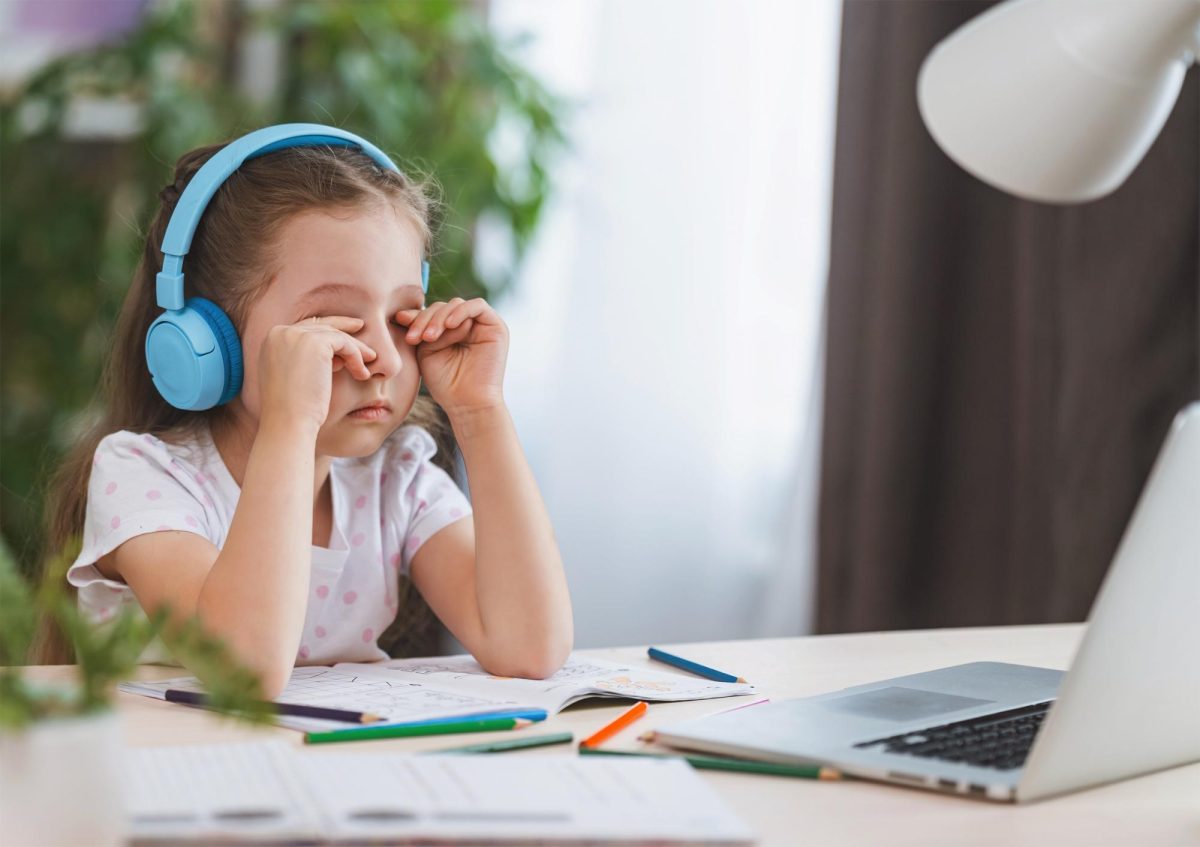Please take a second and think about how often you have seen a young kid holding an iPad or a phone, often immersed in it and not paying attention to what is around them. Whether at a nice restaurant, school, cafe or airplane…this is the reality of today’s society.
Kids have access to technology sometimes as early as age two. Children should not have access to, or should have, regulated access to technology until they are in middle school, and here is why: technology harms eyesight and sleep schedules, can impact brain development, and frequently viewing social media can warp physical appearances and hurt mental health as a result.
I’m sure many of you have heard about the harmful effects of blue light on your vision and your sleeping habits. According to “Kids Health,” blue light delays the release of melatonin, which is the drug that helps you to fall asleep, while darkness helps to trigger this release of melatonin.
This is because the blue light emitted by screens confuses your brain into thinking you’re supposed to be awake instead of asleep. So, blue light from technology prevents regular sleep cycles, especially in children and teenagers. This proves to be a problem because the lack of sleep tends to offset moods and regular performance, whether it be academically or physically.
Technology can also cause eye strain, resulting from staring at a screen for too long. It leads to trouble focusing, headaches, and sore eyes. Dry eye syndrome causes your eyes to feel dry and itchy because when looking at a screen, you blink about half the amount you usually do. None of these situations are favorable for young children.
Having access to technology usually correlates with having access to social media, which can warp children’s perceptions of what is normal. Social media is filled with influencers showing off the newest trendy products, clothing, and styling items. For teenage girls especially, many of these influencers are women with seemingly “perfect” bodies and flawless skin.
According to “Safe Search Kids,” “social media’s curated and filtered nature can distort children’s perception of reality and affect their self-esteem and emotional well-being.” The content seen on social media often lowers self-esteem because it creates unrealistic beauty and success standards. It lowers self-esteem, and social media often pressures kids to get social validation, affecting their sense of identity and belonging. In the long term and depending on the person, social media can lead to detrimental effects such as mental health problems, eating disorders, reduced academic performance, and lessened social interaction. To protect young children from this, they should have regulated access to social media and technology, if any at all.
According to “Safe Search Kids,” “a study published in JAMA Pediatrics found a significant association between increased screen time and lower scores on developmental screen tests in toddlers. The results have indicated that children aged 24 to 34 months with higher screen time levels exhibited lower performance on a screening measure that evaluates their achievement of developmental milestones at 36 and 60 months.” This means that those who use technology have much lower brain progress than those who do not. A different study found that the brains of those who are addicted to their phones and other technology physically warps the shape and size of the brain in a way that is similar to a drug addict’s brain. Take a second to think about that. Being addicted to technology changes your brain the same way drugs would.
In the people who are addicted to their phones, there is decreased brain activity as opposed to those who are not addicted, and there is also a decrease in the ability to show emotions and memory and understand what is going on around them, according to “RF Safe.” The damage technology can have on children’s brains, amongst other things, cannot be justified by trying to fix a child’s boredom.
“Pew Research” recorded that 67% of children under the age of 12 use a tablet or a computer, and 60% use a phone. Even 74% of children who are two or younger watch television. This is not healthy for their brains or their bodies.
Children should not have technology of their own, or that they constantly use, until they are in middle school. This is because technology hurts eyesight and disrupts sleep schedules, can harm brain development, and social media apps can distort physical appearances and negatively impact mental health because of it. I encourage you to think about the facts I have stated and how you can make a difference.


































